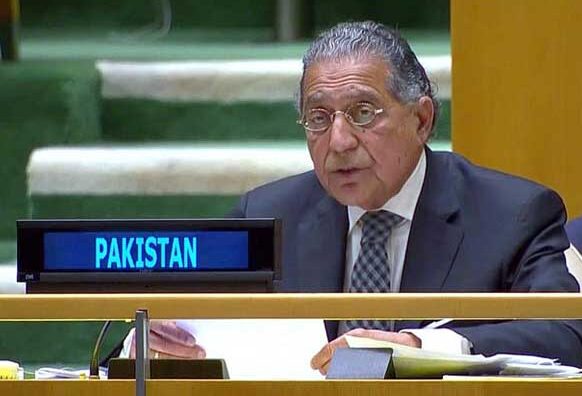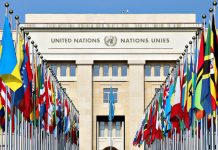NEW YORK: Pakistan has called on developing countries to seek implementation of the commitments made in the United Nations (UN) Pact for the Future, which is aimed at transforming the multilateral system, noting that it has baulked at even some of the pledges made to them in other reform accords.
UN Secretary-General Antonio Guterres, who organised the “Summit of the Future”, had billed the Pact for the Future as a “once-in-a-generation opportunity” to reshape human history by rekindling international cooperation.
“Undoubtedly, the pact we have adopted is not perfect,” The Permanent Representative of Pakistan to the UN Ambassador Munir Akram said during a discussion on: Transforming global governance and turbo-charging the implementation of the 2030 Agenda for Sustainable Development.
“There are many provisions in which we have stepped back from the commitments which were made in the SDG political declaration and even in agenda 2030,” the Pakistani envoy added.
However, he added, the transformation, which the developing countries were seeking, would only be achieved through implementation. In this regard, Ambassador Akram underscored the need to implement the commitments undertaken on the reform of the international financial architecture, the SDG stimulus; to re-channel 50% of the 2021 SDR allocations to developing countries; increase the voice and representation of developing countries in international financial institutions, and improve developing countries access to concessional lending; review the sovereign debt architecture, and adopt an equitable UN Framework Convention on International Tax.
Envoy Akram also called the pact’s provisions on trade “unsatisfactory”.
“Trade must become, once again, an engine of growth and development.
“We must resist the new environmental protectionism, expand preferential treatment for developing countries, and pursue a robust revival of the WTO (World Trade Organisation) dispute settlement system,” he added.
Munir went on to say that bridging the digital divide was a key to future development, stressing the avoidance of the north-south fragmentation as well as an East-West fragmentation of the digital space.
“We must ensure equitable data governance,” the Pakistani envoy said.
“We must capture the power of artificial intelligence, including through an International scientific panel on AI, an Annual Dialogue on AI governance, as well as a fund on AI capacity building.
“Finally,” he said, “the key will be the computing power for developing countries” — to achieve that, developing countries need access to the latest technologies and designs and to invest in achieving these products. –Agencies



